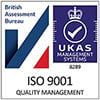Many recruiters work in-house for large companies, helping to fill vacancies with current employees or external applicants. As well as all the pressures that operate on independent recruitment companies, in-house recruiting can involve some special challenges, which need to be taken into account when considering staffing software solutions.
Staffing Software Solutions for In-House Recruiters
In-house recruiters and HR departments face many of the same difficulties faced by independent recruitment agencies: high volumes of applications per post especially when advertising externally; limitations on resources available for CV sifting; and pressure to find and place high quality candidates in a reasonable period of time to cover business critical functions.
As described in other articles, DaXtra is designed to carry out curriculum vitae analysis on CV's in any format and language and turn them into structured, searchable data in seconds – effectively eliminating the problem of CV volume. But it can also deliver some important additional benefits for the in-house recruiter.
Non-specialist Recruitment Staff
In-house staff conducting the recruitment process may not be specialists – either as recruiters or in the technical field they are recruiting for. In some companies the person or people carrying out the recruitment may be HR personnel with multiple duties such as day-to-day HR issues, and other Personnel functions.
So it is vital that any staffing software solutions considered take this into account and, in particular, do not require a steep learning curve, particularly when it comes to querying and searching the database for matches with a vacancy. DaXtra Search uses natural language querying, allowing recruiters to enter keywords they are interested in, in a similar way to using an internet search engine. This makes it easy for non-specialist staff to search the CV database and build shortlists based on the best matches.
Internal Lines of Command
In-house recruiters have clients, just like independent recruiters, but these "clients" are other departments within the same company. And there will usually be established processes for carrying out in-house recruitment involving approval at key stages. It is important that any recruitment software supports these internal processes rather than forcing employees to use a different process or devise workarounds. DaXtra does not assume any set process and allows existing workflows to be enabled, maintained and adapted as company processes evolve.
Competition with Independents
HR functions of all kinds have to constantly justify their value to the business, and never more so when times are tough. While some companies have always recruited in-house for a variety of reasons, some have brought recruitment in-house as a way of cutting costs during the downturn. But the true cost of a placement depends on the quality of the person who is recruited – whether they deliver and whether they stay with the company for a meaningful length of time. A cheaper placement isn't cheaper if it has to be repeated every 6 months. And, costs aside, there is often a perception that the bigger recruitment companies are better placed to find good quality candidates compared to an in-house operation. But what does "better placed" mean? It means access to a wide pool of talent due to a combination of industry contacts, access to preferential advertising rates and powerful software which can help to source potential candidates.
But with DaXtra it is possible for a modestly sized company to have access to as wide a pool of talent as they could wish for. DaXtra Search can search a variety of online job boards and social or business networking sites for candidates with the relevant skills. So an in-house team with a limited advertising budget can source a much bigger selection of candidates than they would otherwise expect to achieve. And, because the CV acquisition and processing stages are automated, in-house teams can also be as responsive to the needs of the business as the larger recruitment firms, in terms of time to come up with a high quality shortlist.
Ensuring Equal Opportunities
Whereas a company employing an external recruitment agency can discharge some of their responsibility for equal opportunities by showing that their supplier has an equal opportunities policy, when recruiting in-house it is necessary to have systems and procedures in place which demonstrate that equal opportunities legislation is followed in practice and systematically by everyone involved in the recruitment process.
DaXtra's Capture, Parser and Search software all inherently assist the process of selection according to ability, simply by eliminating human intervention at critical stages.
For instance, when DaXtra goes looking for CV's on job boards or networking sites, it is set to search for specific skills and cannot consciously or subconsciously exclude CV's from the search based on, for instance, ethnicity, religion, age or gender. The parsing stage in which CV's are turned into structured data and incorporated into the database is similarly uninfluenced by such factors. And when a consultant carries out a manual or automated search of the database for resumes to match a particular vacancy, the results are ranked in order of how well the skills of the CV and vacancy fit.
When it comes to sending shortlisted CV's to the appropriate person within the company (e.g. the technical or operational area that will be agreeing a final shortlist and carrying out interviews) DaXtra Styler can be used to anonymise CV's and, if required, remove specific fields that might otherwise indicate age, gender and so on.
Internal and External Candidates
A special case of equal opportunities arises when vacancies are open to both internal and external candidates (which is frequently required by law). Here it is vital that selection and shortlisting are carried out based on skills and experience alone, with internal candidates being neither advantaged nor disadvantaged. With an in-house team it is all too easy for the suspicion to arise – however scrupulous individual recruiters may be – that in-house selection will naturally favour internal candidates, and that the only way to really avoid this is to use an independent recruitment agency.
Using DaXtra Capture to process all applications in the same way, and then using DaXtra Search to perform job matching against a vacancy skills list ensures a shortlist based on ability rather than time served or personal reputation. Visibility or awareness of this automated process within the company can be helpful in promoting trust and a sense of fairness in the recruitment process.
In short, the automated features of DaXtra's staffing software solutions help in-house recruiters to:
- Deliver a high quality recruitment function without the need for extensive additional training
- Conform to workflows required by internal processes and lines of command
- Source candidates from a wide variety of conventional and online sources, increasing the chances of a high quality placement
- Compete with big independent recruitment companies in terms of candidate reach and processing power, enhancing their value to the organisation
- Demonstrate a fair recruitment process which fulfils equal opportunities requirements for both internal and external candidates
To find out more about how our recruitment software can assist your company's in-house staffing requirements please contact us.



